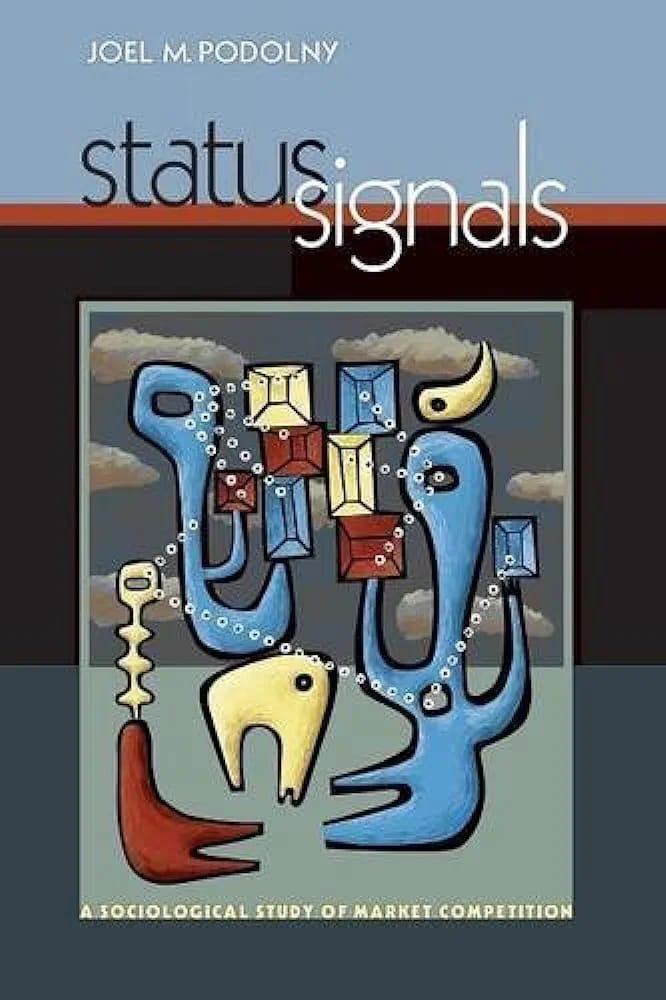When Pankaj Patel was named Chairman of the Board of Governors of Indian Institute of Management Ahmedabad (IIMA) last year, it considerably enhanced his stature. The chairman of Zydus Lifesciences was the first Ahmedabad-based businessman invited to take a chair that had previously been occupied by stalwarts like NR Nayana Murthy, AM Naik and Kumar Mangalam Birla. He became a statesman-industrialist.

Not everyone was happy with the appointment though. On IIMA alumni WhatsApp groups, many grumbled that Patel lacked the prestige that previous appointees had brought to the post. His chairmanship, they said, had diminished the prestige of the institute.
Former dean of Yale School of Management, Joel Podolny, believes status does leak through linkages. “It is a zero-sum game,” he says. “If there is a linkage between two players of unequal status, the one with higher status will experience a drop in status while the lower status one will gain.”

Podolny, who is currently the dean of Apple University (the in-house training centre for Apple employees) is the author of Status Signals, where he applies what is essentially a social construct to the world of business. Status anxieties, he says, often override money concerns and influence whom a firm accepts as a partner, the markets it chooses to enter and the price it can charge.
One example is Morgan Stanley’s entry into junk bonds. While other investment banks were making huge profits selling these high-yield, high-risk debt instruments in the 80s, Morgan Stanley initially stayed away because dealing in junk bonds would reduce its status. But as the junk bond market continued to boom, Morgan Stanley finally gave in. In announcing its entry, the firm said it would “gentrify” the junk bond market, giving it status.

This is a case of a bank willing to forgo status for the sake of income, but it quite often works the other way round. In its heydays, Morgan Stanley would not accept any position less than lead manager while executing deals. Legend has it that it would not even relent for IBM, one of its oldest and largest clients, which wanted to appoint Solomon Brothers as a co-manager. IBM eventually appointed the now defunct Solomon as lead manager for the deal, and Morgan Stanley lost $1 million in underwriting fees.
Another of Podolny’s favourite examples of the status dilemma is elite jewellers refusing to sell turquoise. Traditionally regarded as a semi-precious stone, turquoise became very fashionable with Americans in the late 1990s, but high-end jewellers would not stock it because it is sold “by the side of the road” in some places. It is the same in India, where branded jewellers refuse orders involving semi-precious stones.
“Whenever there is uncertainty about quality, such as in the jewellery business, status becomes a proxy for quality. High status is difficult to attain, so when you have attained it, there are some things you just do not do,” says Podolny.
Status is a product of long history and it is maintained by carefully chosen linkages. The Tatas and Birlas certainly have high status in India, so when they briefly entered film production in the early 2000s, they effectively raised the stature of Bollywood, which had been battered by stories of underworld funding. Did the business houses lose their own stature in the process? They certainly did. “Strong past performance and product quality are not always enough,” says Podolny. “To achieve status, firms must also manage cultural signals.”
For those who have it, status is something that can be leveraged to great benefit. The high-status Tata Administrative Service (TAS) has always got preferential treatment at IIMA. It conducts campus interviews a few days before other companies and IIMA graduates traditionally prefer TAS to other jobs, though it offers lower pay and slower career paths.
Podolny’s research shows that high-status venture capital capitalists can opt for later round funding rather than early round funding, where the risks are high. High status companies are also insulated from the vagaries of the market since they are less prone to losing clients during a slump. Indeed, those with higher status tend to get more rewards than those with lower status, even if it is the same work.
Also Read: ‘Vibrant’ Gujarat Miffs Maha Opposition












